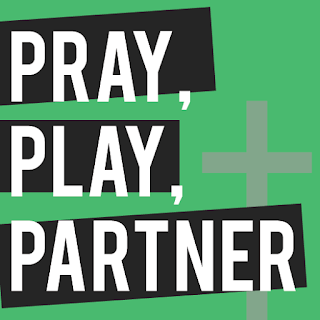If you have any questions about the Sabbatical, or what it will entail for us as pastors, or for the congregation, please don't be shy about asking. Any member of the Sabbatical Team (Dawn Byrd, Joby Dynneson, Kristin Harney, Mark Ramseth, Mariann Witthar), Pastor Grant, and I, would be very glad to answer them!
One thing that's come up in recent conversations, is a desire for better understanding of the funding for the Sabbatical, and how it will affect CtK. The financial implications of the 2016 Sabbatical for the congregation are fairly straightforward:
- Pastors Grant and Lindean continue to receive regular salary and benefits, per CtK's Sabbatical Policy.
- The congregation will offer the standard Montana Synod “pulpit supply” honorarium of $100/Sunday to guest pastors/preachers. The sabbatical is 13 weeks long (June 6-September 6), so an additional $1300 was added to the 2016 spending plan, and approved at the Annual Meeting of the congregation.
- The congregation included $1500 for continuing education for pastors in the 2016 Spending Plan, (an annual part of our compensation) which can be used to cover sabbatical expenses.
All the rest of the funds necessary to cover sabbatical activities (tuition, room/board, transportation, books) must either be raised - hence the We Raise campaign - or supplied by the pastors.
Sabbatical Costs
Grant – Center for Loss and Life Transition (Week 1): $775 Tuition, $700 Room/Board, ?? for Transportation; The Daring Way: $250 Tuition, ?? Room/Board, ?? Transportation; Center for Loss and Life Transition (Week 2): $775 Tuition, $700 Room/Board, ?? for Transportation
Lindean – "Mini MBA for Pastors:" $1600 Tuition/Room, $200
Meals, $550 Transportation; Grunewald Guild: $885 Tuition/Room/Board, ?? Transportation; Monastery of St. Gertrude: $450 Retreat Fee/Room & Board, $150 Spiritual Direction, ?? Transportation
Lindean & Grant: Gottman Institute - The Art & Science of Love: $750 Tuition, $750 Room/Board
Total of Known Costs for Pastors: $8535 (which doesn’t include
several variable costs, like driving/transportation - all the ??s, above)
Costs for CtK: The biggest "Sabbatical Project" will be the construction of a prayer labyrinth on CtK's grounds. Costs have not been precisely determined yet, but early estimates are in the $1500-$2500 range. This money may be raised through the We Raise crowdfunding site (if we get to the second "stretch goal") or will be raised by the congregation separately. The rest of CtK's summer ministries and projects will be funded through the general offering received, according to the Spending Plan adopted at the Annual Meeting, with oversight of the Church Council.
Again, if you've got questions, please ask them!
And, if you're inclined to support Pray, Play, Partner, with a financial contribution, thanks very much! Either way, Pastor Grant and I covet your prayers, for us, for our family, for CtK, and for all the opportunities God gives us to grow in faith, as we worship, learn, and serve.
Peace!
Pastor Lindean
Costs for CtK: The biggest "Sabbatical Project" will be the construction of a prayer labyrinth on CtK's grounds. Costs have not been precisely determined yet, but early estimates are in the $1500-$2500 range. This money may be raised through the We Raise crowdfunding site (if we get to the second "stretch goal") or will be raised by the congregation separately. The rest of CtK's summer ministries and projects will be funded through the general offering received, according to the Spending Plan adopted at the Annual Meeting, with oversight of the Church Council.
Again, if you've got questions, please ask them!
And, if you're inclined to support Pray, Play, Partner, with a financial contribution, thanks very much! Either way, Pastor Grant and I covet your prayers, for us, for our family, for CtK, and for all the opportunities God gives us to grow in faith, as we worship, learn, and serve.
Peace!
Pastor Lindean








